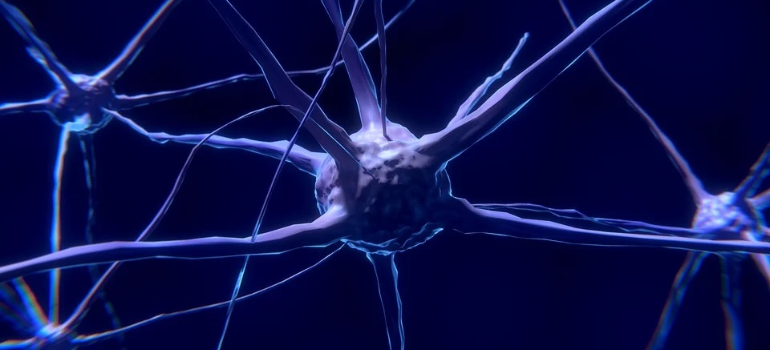The intricate relationship between mental health and substance abuse necessitates a comprehensive exploration. As the opioid crisis and a concurrent mental health crisis continue to pose significant challenges, it becomes imperative to understand the intricate dynamics between these two issues. At Alamo Behavioral Health, we have both experienced and extensively studied the profound interplay between mental health and substance abuse. As providers of services for rehab and detox Texas trusts, we believe it is our responsibility to delve into this matter with due diligence. By shedding light on the complex connection between the two, we hope to contribute to the ongoing discourse and aid in the development of effective interventions and support systems.
An Introduction to Dual Diagnosis
Initially, we should start our exploration with a fundamental term. “Dual diagnosis” refers to the co-occurrence of a substance use disorder and a mental health disorder in an individual. This is the term one will often encounter when exploring this subject, so it does warrant note.
Dual diagnosis is an increasingly prevalent phenomenon that demands attention and comprehensive understanding. According to the National Institute on Drug Abuse (NIDA), dual diagnosis is a relatively common occurrence:
- A reported 9% of adults with substance use disorders also struggle with mental health disorders.
- A reported 2% of adults with mental health disorders also struggle with addiction.
- Estimates suggest that approximately half of individuals who experience a mental health disorder will also struggle with substance abuse at some point in their lives.
The phenomenon of dual diagnosis also presents unique challenges. Both disorders can interact and exacerbate each other, leading to a complex and intertwined set of symptoms and treatment needs. Therefore, understanding and addressing this intertwined nature is crucial for effective and holistic care.

The Relationship Between Mental Health and Substance Abuse
Indeed, the relationship between substance abuse and mental health is intricate and multifaceted. Substance abuse can serve as a contributing factor to the development of mental health issues, as prolonged drug or alcohol use can disrupt brain chemistry and lead to imbalances that contribute to psychiatric disorders. Moreover, substance abuse can exacerbate existing mental illnesses, intensifying their symptoms and making them more challenging to manage.
For instance, individuals with depression may turn to substances as a means of self-medication, unwittingly worsening their depressive symptoms in the long run. Similarly, substance abuse can trigger anxiety disorders, such as panic disorder or generalized anxiety disorder, creating a cycle where substance use heightens anxiety and anxiety drives further substance abuse.
The above aside, other mental health disorders influenced by substance abuse include bipolar disorder, schizophrenia, and post-traumatic stress disorder. In these cases, substance abuse can worsen the severity and frequency of symptoms, impair functioning, and hinder treatment effectiveness. For a prime example, programs for PTSD treatment for veterans Texas offers often have to address PTSD symptoms before focusing on addiction treatment.
As such, understanding the interplay between substance abuse and mental health is vital for comprehensive care. As we will see, effective interventions must address both substance use and underlying mental health concerns to promote lasting recovery and well-being.
The Influence of Mental Health on Substance Abuse
As regards introductions, mental health and substance abuse share a particularly profound interaction. Both conditions can kindle each other, but unaddressed mental health disorders can commonly incite addiction.
Mental health disorders can act as risk factors for substance use and addiction due to the aforementioned means of self-medication or to alleviate distressing symptoms. They can also contribute to the development of substance abuse by creating vulnerabilities such as low self-esteem, impaired impulse control, and difficulties coping with stressors. For instance, individuals with conditions like depression or anxiety may seek temporary relief or escape through substance use, inadvertently paving the way for dependency and addiction.

Other conditions like bipolar disorder, borderline personality disorder, and post-traumatic stress disorder can increase susceptibility to substance abuse due to the desire to regulate moods, manage intense emotions, or numb emotional pain. Such conditions can also dissuade individuals from completing detox or even attempting it, as providers of medical detox San Antonio offers can attest to.
Common Co-Occurring Mental Health and Substance Abuse Issues
With introductions in order, here we can delve deeper into specifics. One of the most pressing concerns lies in the impact of dual diagnosis, so this can serve as our foundation.
The impact of co-occurring disorders on individuals’ well-being is profound. As both conditions interact and intensify symptoms, they can inadvertently invite a higher risk of relapse and poorer treatment outcomes. Individuals with co-occurring disorders often experience reduced overall quality of life, more severe symptoms, and impaired functioning. Lastly, and tragically, such individuals will often also have a higher risk of self-harm or suicide.
Examples of common co-occurring disorders include:
- Depression and alcohol use disorder
- Anxiety disorders and stimulant use
- Post-traumatic stress disorder and opioid addiction
These are far from the only examples, however. Virtually any substance use disorder can co-occur with any mental health disorder. This is why any reputable program for drug detox San Antonio offers will seek to address each combination individually.
Mental Health Disorders Associated with Alcoholism
For more specific examples, we should start with alcoholism. Alcohol use disorders are worryingly common, in no small part because alcohol enjoys much more social acceptance than most substances.
Mental health disorders frequently intertwine with alcoholism, forming a complex and challenging dual diagnosis. Common mental health disorders associated with alcoholism include:
- Depression
- Anxiety disorders
- Bipolar disorder
Alcoholism and these mental disorders often have a bidirectional relationship, as dual diagnosis tends to manifest. As already stated, alcohol use, like other substances, can exacerbate symptoms of mental illness, while mental illness can drive individuals to self-medicate with alcohol. This interplay between mental health and substance abuse intensifies the severity and complexity of both conditions, making treatment more challenging.
Therefore, diagnosing dual diagnosis cases involving alcoholism requires careful assessment. Notably, the symptoms of alcohol intoxication or withdrawal can mimic or mask underlying mental health symptoms. Additionally, individuals with dual diagnosis often face unique treatment obstacles, as alcohol dependence can complicate medication management and recovery efforts.
Mental Disorders Associated with Drug Addiction
Alcohol aside, mental health disorders also often intertwine with drug addiction. As any reputable opiate detox center Texas offers can attest to, the ongoing opioid crisis only exacerbates this fact.
Common mental health disorders associated with drug addiction include:
- Depression
- Anxiety disorders
- Schizophrenia
As with alcohol, the relationship between drug addiction and these mental disorders is multifaceted. One fuels the other, leading to a vicious cycle of self-destructive behavior.
Diagnosing and treating dual-diagnosis cases involving drug addiction also present unique challenges. Substance use can mask or mimic symptoms of mental illness, making accurate diagnosis difficult. Additionally, the presence of drug dependence can complicate treatment approaches and adherence to medication regimens. Indeed, individuals experiencing dual diagnosis tend to relapse more often and tend not to complete rehab successfully as easily.
Negative Behavioral Patterns and Addiction
Finally, the connection between mental health and substance abuse also manifests in declining behavioral health. Negative behavioral patterns often go hand in hand with addiction, creating a detrimental cycle that can be challenging to break.
Poor behavioral health can fuel the development of addiction, including such forms as:
- Impulsivity
- Low self-esteem
- Difficulty managing stress
These behaviors can also contribute to the initial substance use and perpetuate the addictive cycle. Conversely, addiction itself can lead to further deterioration in behavioral health, as individuals may engage in lying, stealing, or other harmful behaviors to maintain their substance use. In many cases, individuals struggling with addiction also have underlying mental health disorders, exacerbating the negative behavioral patterns.

As such, dual diagnosis treatment is vital in addressing these complex cases as well. Inpatient dual diagnosis treatment centers in Texas focus on both addiction and underlying behavioral health concerns for this reason. By targeting both aspects simultaneously, treatment providers can approach dual diagnosis cases holistically and ensure better recovery outcomes. Through this approach, individuals can learn healthier coping mechanisms, develop self-awareness, and work towards positive behavioral change.
Recognizing and Addressing the Overlooked Dual Diagnosis
With all of the above in mind, dual diagnosis remains both challenging and overlooked. As addiction treatment pioneers, we have delved into this pressing phenomenon and have identified the following beneficial practices.
Emphasizing Dual Diagnosis
First, emphasizing dual diagnosis is crucial in recognizing and addressing the interplay between mental health and substance abuse. As mentioned, dual-diagnosis cases often go unnoticed or misdiagnosed due to several factors, such as:
- Overlapping symptoms
- The stigma surrounding mental health and addiction
- The focus on treating only one aspect of the individual’s condition
For an example of all three in action, here we can cite benzo addiction. Benzo addiction can often include anxiety, insomnia, irritability, and restlessness, as well as mood swings, depression, and impaired judgment. As such, these symptoms can often mask underlying mental health disorders, especially if addiction treatment providers approach diagnosis carelessly. During benzo detox in Texas, individuals experiencing such symptoms would also often suppress themselves out of fear of stigma. Only in recent years have these trends changed, allowing for better and more accurate dual diagnosis treatment.
As such, we strongly believe in the power of raising awareness about the prevalence and complexity of dual diagnosis. Through it, healthcare professionals can become more vigilant in identifying and appropriately addressing these cases. By addressing both aspects of the individual’s condition, they can make more accurate diagnoses, leading to tailored and effective interventions.

Identifying and Combating Stigma
In addition, identifying and combating addiction stigma and mental health stigma is crucial in addressing this phenomenon. The stigma surrounding mental health and substance abuse can create significant barriers to treatment, exacerbating the existing challenges of dual diagnosis.
Due to the stigma surrounding both conditions, individuals may hesitate to seek help. They may fear judgment, experience shame, or even embrace the belief that their conditions are a personal failure.
To combat stigma, it is essential to promote education and awareness about mental health and addiction. This approach can help emphasize that both are medical conditions that require support and treatment. Encouraging open conversations, reducing stereotypes, and fostering empathy can help break down barriers and create a safe and supportive environment for individuals to seek help.
Tailoring Addiction Treatment to Dual Diagnosis
Lastly, tailoring addiction treatment to dual diagnosis is essential in addressing this pressing public health crisis. As we’ve covered above, integrated approaches that consider both aspects of dual diagnosis are vital for providing proper treatment.
Initially, comprehensive assessments are necessary to accurately diagnose and understand the interplay between mental health and addiction. By evaluating the unique needs, symptoms, and challenges of each individual, treatment providers can personalize plans to address both the mental health disorder and the addiction concurrently. For instance, Xanax detox Texas programs have been yielding very promising results by following this exact principle.
In turn, treatment providers can embrace integrated treatment models that cater to the interplay between mental health and substance abuse. Such models combine evidence-based therapies, medication management, and support systems to provide holistic care. This approach recognizes the interconnected nature of mental health and addiction, allowing for a more comprehensive and effective treatment experience.

Diagnosing and Treating Co-Occurring Mental Health and Addiction
Indeed, diagnosing and treating dual diagnosis involves a comprehensive and integrated approach. This applies to any substance, regardless of perceived severity. From cocaine treatment to marijuana detox Texas programs, dual diagnosis always requires a holistic approach to thoroughly and effectively treat.
The diagnostic process begins with a thorough assessment of the individual’s mental health and addiction disorders. It starts by considering both conditions’ symptoms, history, and impact on daily functioning. Assessment and evaluation warrant strong attention, as symptoms of one condition may overlap or mask those of the other.
Next, a multidisciplinary team, including psychiatrists, psychologists, and addiction specialists, collaborates to ensure a comprehensive understanding of the individual’s needs. Treatment approaches for dual diagnosis encompass a range of interventions, including:
- Therapy, such as cognitive-behavioral therapy (CBT) and dialectical behavior therapy (DBT). Therapy helps individuals develop coping skills, manage cravings, and address underlying issues. Individual therapy will benefit the initial stages, while group therapy can cement recovery in later stages.
- Pharmacotherapy, as managing psychiatric symptoms or supporting addiction recovery, may require medication. This can include antidepressants or medication-assisted treatment (MAT) for substance use disorders.
- Specialized and continuous care that leverages peer support and support groups, such as 12-step programs or dual recovery anonymous groups. Such care can further cement recovery while addressing both conditions at once.

Alamo Behavioral Health Is Here for You
The connection between mental health and substance abuse is a critical area that demands our unwavering attention. Dual diagnosis is alarmingly prevalent and significantly impacts individuals’ lives. As the urgent need for comprehensive and integrated treatment becomes increasingly apparent, focusing on dual diagnosis is paramount.
At Alamo Behavioral Health, we specialize in behavioral health and mental health disorder treatment, fully recognizing the complexities of mental health and substance abuse. We understand that effective care requires tailored approaches that address both underlying mental health concerns and the challenges of addiction. By prioritizing dual diagnosis and implementing comprehensive treatment strategies, we aim to support individuals in their journey toward recovery and improved well-being.
If you or your loved ones are in need of our services, we would be happy to hear from you. Please feel free to contact us today and let us know how we can help.




